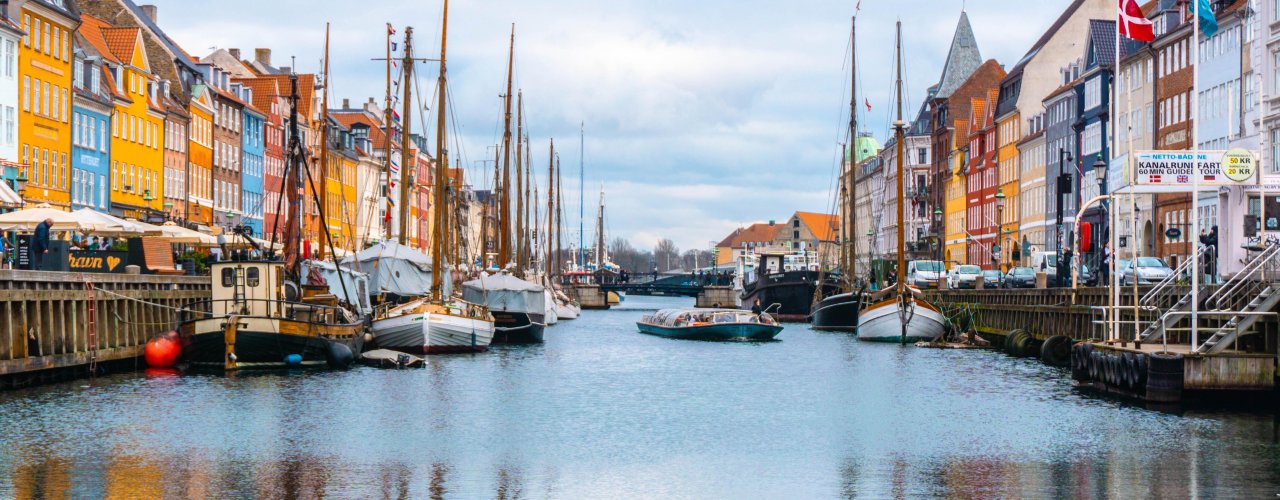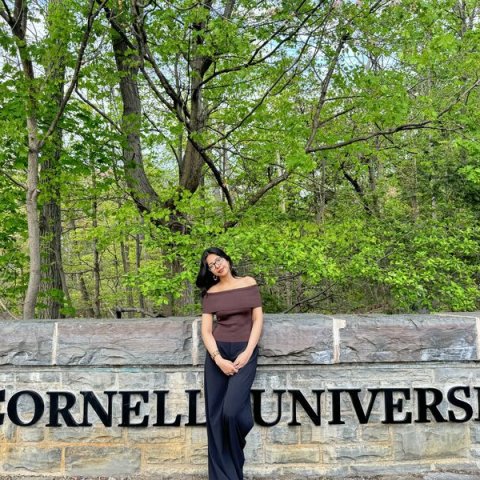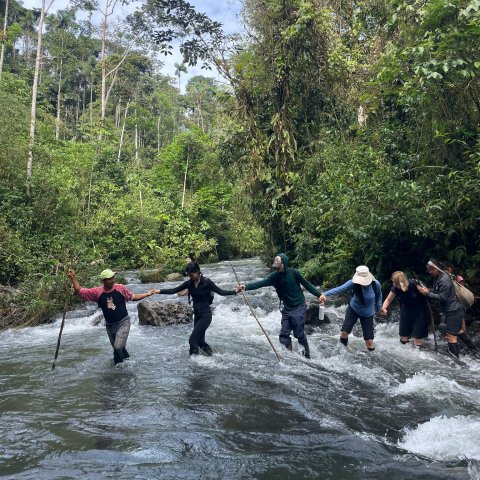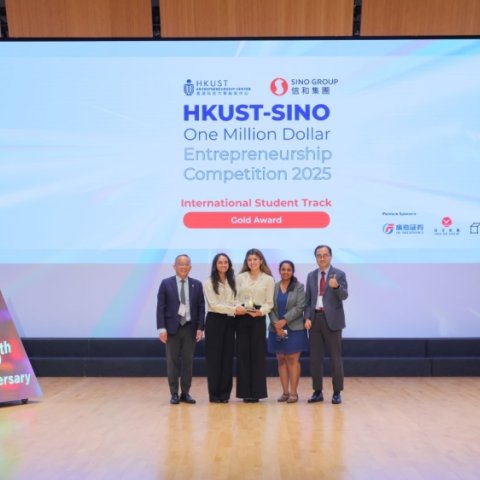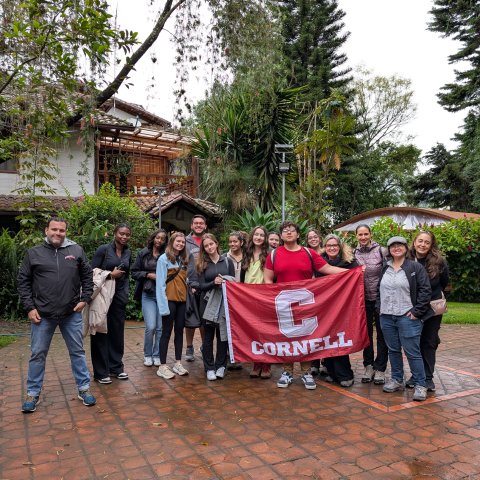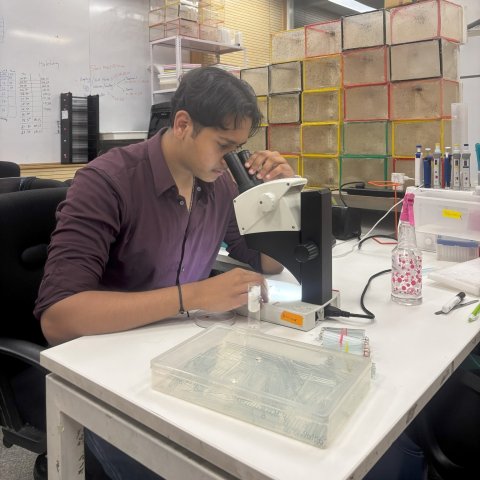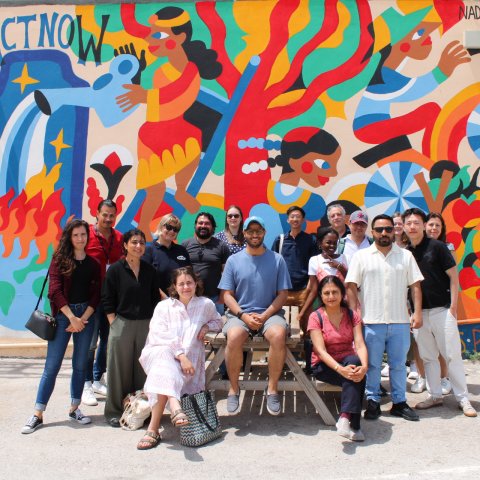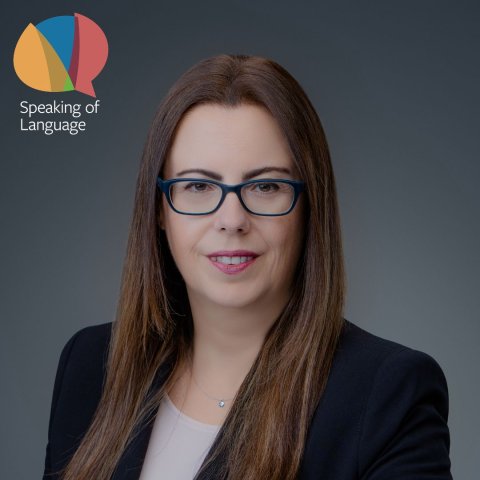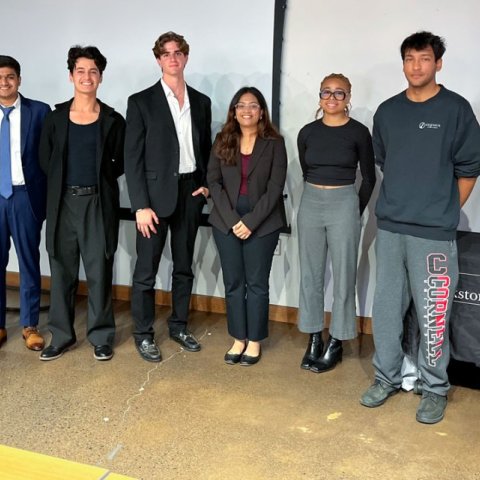Student Experiences
Cornell Global Hubs are the point of entry to a world of opportunities for students — from life-shaping study abroad to hands-on internships and field experiences.
Our exchange network lets students from Cornell and Hubs universities experience the world and learn from it, while they make international connections and advance their academic and career goals.
Experiences Fast Facts
489
Cornell students studied at Hubs on exchange
30
Cornell Global Internships at Hubs locations
228
Partner students studied at Cornell on exchange
World-Class Experiences
Hundreds of students since 2022 have enrolled in unique courses, gained hands-on experience, and expanded their language fluency with immersive international experiences at Global Hubs locations worldwide.
How Students Experience Hubs
Undergraduates across Cornell and the Hubs network find their place in the world through immersive study abroad and experiential internships. Graduate students can explore career-enriching opportunities, including joining faculty-led research at Hubs locations and making connections with fellow graduate researchers.
Study Abroad: Semester, Year, or Short-Term Trek
Cornell undergraduates find transformative study abroad experiences at Hubs locations around the world. Hubs offer courses for every major taught in English, as well as language coursework. Focused short-term international experiences led by Cornell faculty and staff are available at several Hubs locations.
Healthcare at University of Copenhagen
Ally Mark '24, Cornell human development major, studied in Copenhagen:
"While in Europe, I learned about and experienced firsthand the differences in the healthcare systems across nations. I’ve been actively applying my knowledge from abroad to my classes at Cornell. It’s so amazing to approach my learning from multiple perspectives."
Global Internships
Cornell undergraduates gain valuable research and career experience with university partners and communities at many Hubs locations. Applications for summer 2026 internships open in October!
Incoming Exchange
Cornell welcomes Global Hubs students for a semester or year of international exchange. Summer Research Academy internships for students from participating exchange partners are another way to experience Cornell.
Ashoka Psychology Major at Cornell
Vanshika Dhull, psychology major at Ashoka University, India:
“Spending spring 2025 at Cornell University was one of the most enriching experiences of my undergrad life. What stood out? The intellectual intensity, the collaborative classroom culture, and the powerful conversations—both academic and personal. From snowy walks across campus to thought-provoking seminars, every moment challenged and changed me.”
Full listing
Cornell students received international recognition and a cash prize from the Hong Kong University of Science and Technology during its One Million Dollar Entrepreneurship Competition 2025.
Source
The Brooks Global Policy Exchange is a reciprocal global learning experience that connects Cornell students with their peers at Global Hubs partner universities like USFQ.
Source
“After the end of my internship, when I boarded my return flight, I carried home more than data and graphs. I brought back an understanding of what it means to do science as part of a truly global community, the confidence to work across cultural and disciplinary boundaries, and the memory of a summer where the challenge I feared most became the one I valued most.”
Mckenna Norton '25 spent a summer in Taipei, Taiwan, as part of the inaugural Cornell-National Taiwan University Chinese Language Summer Program.
Source
Queen Mary University of London and Cornell University have co-delivered the first joint Global Migration Spring School, held from 4 to 9 May at the Queen Mary Malta Campus in Gozo.
Source
Cornell's Language Resource Center catches up with Şebnem Özkan, director of Global Hubs, to learn what's new in Cornell's collaborative, interdisciplinary initiative with partners around the world.
Source
Over 70 undergraduates learned career-shaping lessons in the field last summer with support from Global Internships and the Laidlaw Scholars Program. Hear more about their experiences at the Nov. 19 Global Cornell Experience Showcase.
Source
Prakhar Singhania's Cold Bank food storage system took the top prize in the BIG Idea Competition. Singhania is an undergraduate exchange student from Global Hubs partner Ashoka University studying supply chain, food science, and material science.
Source
Four Imperial College London PhD students share their experiences at Cornell during the 2023-24 academic year. They partnered with Cornell professors and researchers as part of the Imperial Global Fellows Fund.

